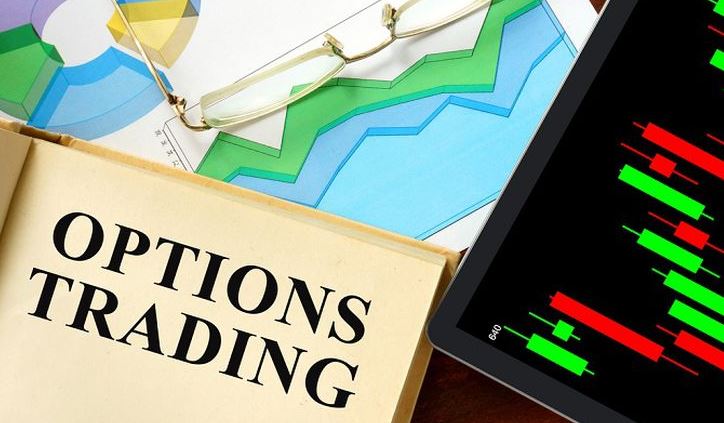Preparing Yourself Mentally
The first thing that we need to do when setting up our own accounts with options trading is to make sure that we are prepared mentally to handle all of this. Options trading is a great investment tool and if you use it in the proper manner, you can make a lot of money in the process. With that said, there are some risks, and you need to take the right steps from the beginning to determine how to get started. Because of this, some of our first tips are going to explore how you can prepare yourself mentally to become a successful options trader. Some of the things that you can do to accomplish this include:
Tip 1: Find a Broker
One of the first things that you should do when trying to get yourself set up for options trading is to find a broker to invest with. A broker is going to be your best friend right from the very beginning. They will determine the fees that you have to pay for each trade that you do. They will answer your questions as you go along. They will provide you with the platform that you will use when you utilize their services as well.
Picking out a good broker is so important when you are trying to see some results with options trading. When you are searching for a good broker, make sure that you spend some time discussing their fees and what services that they offer. You will be amazed at the different prices that each one is going to suggest for the same kinds of services, and it is always better to know this ahead of time. If someone offers a higher price but also has more services for that price, it is worth considering them. But if a broker has a higher price and fewer services, it is fine to go with someone else and take a better deal.
Once you have an idea of the fees you will be paying with each broker and how much value they will provide to you, it is time to move on to asking them some questions. Go in with a list of questions that you have and make sure they all get answered. Discuss how the fees are, how much they are able to help you with the trades, how the platform works, what kind of assets they offer for options trading and more.
You should feel fully confident with the broker you wish to work with. There are many brokers out there, but not all of them are going to offer the services that you want, some may not be able to answer your questions, and others just may not put you at ease like you want. After interviewing a few different brokers, you should have a good idea of who you would like to work with on all your trading endeavors and you can choose to go with them.
One thing that you should consider when you are looking for a broker. Many of these brokers will allow you to take a practice run or two on one of their demo accounts. This can benefit you in a few ways. First, it gives you the opportunity to try out the platform that the broker is offering and see if it is the right one for you. If you feel that something is off with the platform or it just isn’t working well for you, at least you will know this ahead of time.
Another benefit of trying a demo account, if it is offered, is that you get a chance to try out a few of your trades ahead of time, to see how they work and determine if you actually know what you are doing, and if you are using the strategies in the proper way, before you enter the market. If you find that some of your trades aren’t going well, you can then re-evaluate your plan and work from there.
Once you have picked out the broker you would like to work with, it is time to set up your account. Check and see if there are any minimum amounts that you need to put in your account to get started and then deposit the amount that you want to have. Some people add in all of the capital that they want to save for the investment into the account right away, and others will just put in the amount they need for that particular trade. Check and see what the rules are with your broker.
Once your money is in the account, you can start to do your research and determine which trades you want to use. You will want to make a trading plan ahead of time, one that outlines your risks, that says what strategy you want to use, and the entry and exit points that you should use and more. This helps you to see what steps you should take in order to start the trades and see the success right away.
After doing your research and setting up the plan, you can give the broker your orders. This tells them what securities to purchase, how many, for what price, and some of the other requirements that you set out. Then stick with the trading plan to make the best decisions to make the trade work out in your favor.
Tip 2: Have some confidence in your trading strategy
As a new trader, you need to spend some time thinking about the trading strategy that you want to use. This particular plan is going to encompass everything that you have already learned about trading, about the markets, and how to apply all of the different techniques. After you sit down and think about the trading approach that you want to work with, then it is time to implement it. Not only do you need to have a plan written out and ready to go though. You must also have the right confidence in this strategy to ensure that you will implement it and get the full benefits from it.
Because of this, no matter what kind of trader you are, always consider the reasons as to why you are taking on this particular type of trade, why you have chosen a certain amount of funds for that trade, and what the profit targets are for this trade. Ideally, the trading strategy is also going to include some reasons as to why you have taken a particular trade.
No matter how tempting it may be to do this, never proceed with a new trade before all of this information is established. Once you have established a reason why you want to go into a particular trade. From there, you can set up a profit target and the right risk parameters to see some results.
For example, you may write out a plan where you have decided that the if the market does move to point A, then you are going to count your losses and then move yourself on to the next trade. But, if the market instead moves to point B, then you are going to take the profits and will strategize on the following trade you want to do. This is an approach that is known as plan your trades then trade your plans. It is always a good idea to stay disciplined with your trades and then stick to the plan as much as possible. If you are able to maintain this approach, then you are establishing a great foundation for options trading and seeing results.
Tip 3: Be Comfortable with Your Trading Capital
There is no trader out there, whether it comes with options or another security or investment opportunity, who wants to lose money. If they did, they wouldn’t waste their time even trying to invest or trade. However, most options trader understand that it is possible to trade options and make money sometimes, and lose money the other times.
Basically, if you get into the options market and you are not ready to accept the risk that you may lose money, then you are going to start trading on your emotions. And trading on your emotions is a terrible thing to do. Once this happens, you may as well just throw your money in the trash. Emotional trading is going to throw discipline out of the window and you will stand no chance of performing as expected.
Before you enter the market, knowing that it is possible that you could lose money and with the idea that your emotions should be kept away, make sure that you are comfortable with the amount of capital that you are trading. There are different rules out there to help you determine how much you should invest and risk. Many experts recommend you stick with about two percent of your total account.
What this means is that when you enter into a trade, you should never risk more than two percent of the total account. This way, if you do lose money, you won’t risk the whole account, and you can still have some capital set aside to help you move on to a new trade, without wiping it all out. You can choose to go with a different set amount on any trade, but making sure that you set this amount in the beginning and then stick with it, can really go a long way in helping you to do well with your trades, can keep your emotions out of the game, and ensures that you don’t wipe out your account on one trade.
Tip 4: Keep Your Expectations Realistic
It is easy to get caught up in the idea of doing options. You are excited to jump right in. And maybe you have heard about others who jumped into the market and saw a lot of success in the process. They made a lot of money and did really well with this kind of market. It is good to have some excitement when you first get started, but this doesn’t mean that you can run with reckless abandon and just go into the market without having some realistic expectations.
There are going to be some really good trades. And then there are going to be some really bad trades. And as a beginner, you are more likely to run into the bad trades as you learn the ropes and how to make it all come together. The best thing that you can do in this situation is make sure that your expectations are realistic the whole time, and to not get carried away.
Remember that you should never let your emotions take over or take control over what you are doing with your trades. When you forget to keep your expectations realistic, you are letting the emotions come into play. When you start with trading, think that it is possible you will lose a few trades, and then work on a trading plan that helps to avoid this as much as possible. Just realize that all beginners are going to lose some money, and then work on a program and a plan that can help you avoid this.
Tip 5: Your Psychology Is Important
The way that you handle the market is going to be so important. In fact, the psychology that you have going into the trade is going to be your foundation. It doesn’t matter if you are a commodities, options, or stock trader. The conditions in the market that you pay attention to are never constant, and there are a lot of changes. And there are times that even with the best preparation and understanding of the market, you will end up losing money. Because of this, it is important that you have a strong foundation that will help you face all of the challenges that the market may and will bring your way.
There are a lot of bad things that can happen in the market, and in 2008 (along with many other times) those things did occur. For example, there are bailouts from the government, housing crisis, the dot-com bubble, and more. Many times these can be seen and the more advanced traders will get out of the market with time to spare. But there are times that even the experts get caught up, and then they lose money in the process.
However, traders need to have a nice strong foundation to help them weather through these storms. These storms are going to happen, no matter how much you work to try and avoid them. Traders who are able to keep their emotions out of the game, who can keep their levels of risk down to a minimum, and who can pick themselves back up after a loss are the ones who are going to be the winners overall.
Getting started with options trading can be really difficult to work with. You must make sure that you are able to set up your account the proper way, and that you know what to expect with all of the different aspects. But if you are able to get your psychology in the right place, find a good broker, and have the right amount of capital in place, you are going to see some amazing results.




